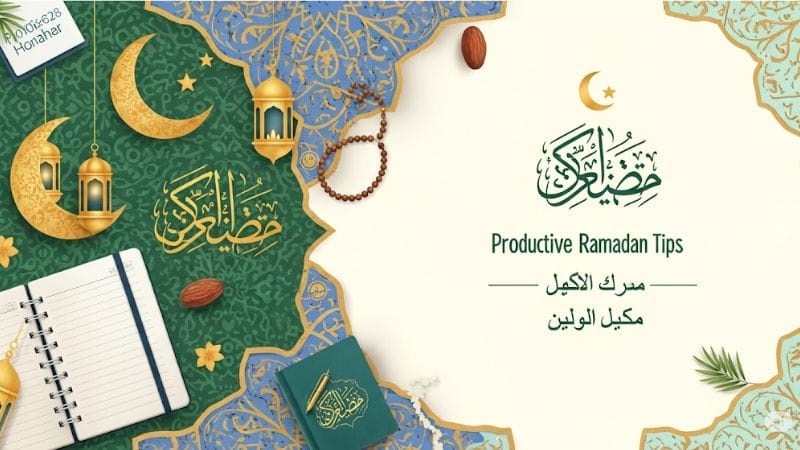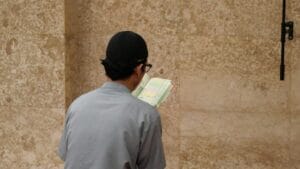Ramadan Routine: Ramadan, the ninth month of the Islamic lunar calendar, is a sacred time for over 1.9 billion Muslims worldwide. Expected to begin around February 28, 2025, and end with Eid al-Fitr on March 30, Ramadan is a month of fasting, prayer, charity, and spiritual reflection. At its core, the practice of dua—supplicatory prayer—serves as a direct line to Allah, fostering a deeper connection with the Divine. Islamic duas for Ramadan are heartfelt invocations that guide Muslims through fasting, worship, and personal growth, making them an essential part of the month’s spiritual journey.
In this extensive guide, we’ll explore the significance of Islamic duas during Ramadan, providing a curated collection of authentic supplications for every moment—from breaking the fast to seeking forgiveness on Laylat al-Qadr. Designed for our website’s blog readers, this article includes practical tips for incorporating duas into daily life, insights into their spiritual and cultural importance, and resources for learning and sharing them. We’ll also cover costs for dua-related products, reviews of popular tools, and advice for creating a Ramadan prayer routine that aligns with Islamic values of sincerity and humility. Whether you’re a lifelong Muslim or new to the faith, this guide will help you harness the power of dua to make Ramadan 2025 a transformative experience.

Why Islamic Duas Matter in Ramadan
Dua, meaning “supplication” in Arabic, is a profound act of worship that reflects a Muslim’s reliance on Allah. The Prophet Muhammad (peace be upon him) said, “Dua is the essence of worship” (Tirmidhi), emphasizing its centrality in Islam. During Ramadan, when spiritual rewards are multiplied, duas take on added significance. Here’s why:
- Spiritual Connection: Duas allow Muslims to communicate directly with Allah, seeking guidance, forgiveness, and blessings.
- Emotional Support: Supplications provide comfort during the challenges of fasting and self-discipline.
- Community Bonding: Sharing duas during iftar or Taraweeh prayers strengthens family and community ties.
- Cultural Heritage: Reciting traditional duas preserves Islamic teachings and connects Muslims to their history.
According to a 2023 survey by the Muslim Ad Network, 87% of Muslims feel more spiritually fulfilled when they regularly recite duas during Ramadan. By integrating these supplications into your routine, you can enhance your worship and create a meaningful Ramadan experience.
Read more:
Essential Islamic Duas for Ramadan
Below, we’ve compiled a comprehensive list of Ramadan-specific duas, sourced from authentic hadiths and the Quran. Each dua is paired with its context, transliteration, and practical tips for use.
1. Dua for Sighting the Crescent Moon
The sighting of the crescent moon marks the start of Ramadan, a moment of joy and anticipation.
Dua:
“Allahumma ahillahu ‘alayna bil-yumn w-al-iman w-as-salamah w-al-Islam. Rabbi wa rabbuk Allah.”
(Translation: O Allah, let this month be a source of blessings, faith, safety, and Islam. My Lord and your Lord is Allah.)
(Source: Tirmidhi)
Transliteration: Allah-humma ahil-lahu ‘alayna bil-yumn w-al-iman…
When to Recite: Upon seeing the crescent moon, typically on the 29th or 30th of Sha’ban.
Tip: Gather your family on your balcony or a local mosque’s rooftop to recite this dua together, fostering a communal start to Ramadan.
Resources: Apps like Muslim Pro (rated 4.8/5 on Google Play) offer moon-sighting notifications and dua audio guides for $4.99/year.
2. Dua for the Intention to Fast
Fasting is a pillar of Islam, and setting the intention (niyyah) is crucial.
Dua:
“Wa bisawmi ghadin nawaytu min shahri Ramadan.”
(Translation: I intend to fast tomorrow for the month of Ramadan.)
Transliteration: Wa bi-sawmi ghadin nawaytu…
When to Recite: Before dawn, ideally during suhoor or after Fajr prayer.
Tip: Write this dua on a card and place it near your suhoor table as a reminder. Teach children the dua to instill the habit early.
Cost: Free printable dua cards are available on Islamic websites like IslamicKids.com. Framed versions cost $10-$20 on Etsy (4.7/5 stars).
3. Dua for Breaking the Fast (Iftar)
Breaking the fast at sunset is a moment of gratitude and reflection.
Dua:
“Allahumma inni laka sumtu wa bika amantu wa ‘ala rizqika aftartu.”
(Translation: O Allah, I fasted for You, I believe in You, and I break my fast with Your sustenance.)
(Source: Sunan Abi Dawud)
Transliteration: Allah-humma inni laka sumtu…
When to Recite: Immediately before eating dates or drinking water to break the fast.
Tip: Display this dua on your iftar table using a decorative plaque. Pair with a bowl of dates to honor the Sunnah.
Where to Buy: Amazon sells iftar dua plaques for $15-$30, rated 4.6/5 for design. DIY with free calligraphy templates from Pinterest.
4. Dua for Laylat al-Qadr (The Night of Power)
Laylat al-Qadr, believed to occur on one of the odd nights in the last ten days of Ramadan, is better than a thousand months (Quran 97:3).
Dua:
“Allahumma innaka ‘afuwwun tuhibbul ‘afwa fa’fu ‘anni.”
(Translation: O Allah, You are Forgiving and love forgiveness, so forgive me.)
(Source: Tirmidhi)
Transliteration: Allah-humma innaka ‘afuwwun…
When to Recite: During prayers on the 21st, 23rd, 25th, 27th, or 29th nights of Ramadan.
Tip: Create a prayer corner with a cushioned mat and soft lighting to focus on this dua. Recite it during Qiyam al-Layl for maximum blessings.
Resources: MyDuaa app offers Laylat al-Qadr dua audio for $2.99, rated 4.9/5 for clarity.
5. Dua for Forgiveness and Mercy
Ramadan is a time to seek Allah’s forgiveness for past sins.
Dua:
“Rabbana zalamna anfusana wa in lam taghfir lana wa tarhamna lanakunanna min al-khasirin.”
(Translation: Our Lord, we have wronged ourselves, and if You do not forgive us and have mercy upon us, we will surely be among the losers.)
(Source: Quran 7:23)
Transliteration: Rabbana zalamna anfusana…
When to Recite: During sujood in Taraweeh or after Quran recitation.
Tip: Memorize this dua using flashcards or a mobile app. Share it with friends to encourage collective worship.
Cost: Dua flashcards cost $5-$15 on Riwaya.co.uk, rated 4.8/5 for durability.
6. Dua for Eid al-Fitr
Eid al-Fitr celebrates the completion of Ramadan’s fasts.
Dua:
“Allahumma taqabbal minna siyamana wa qiyamana wa salatana wa zakatana.”
(Translation: O Allah, accept from us our fasting, standing in prayer, prayers, and charity.)
Transliteration: Allah-humma taqabbal minna…
When to Recite: During Eid prayers or family gatherings.
Tip: Decorate your home with Eid banners featuring this dua to spread joy. Host an Eid brunch to recite it together.
Where to Buy: Etsy offers custom Eid banners for $20-$50, rated 4.7/5 for craftsmanship.
7. Dua for Gratitude
Gratitude is a cornerstone of Ramadan, reflecting appreciation for Allah’s blessings.
Dua:
“Alhamdulillahil ladhi at’amana wa saqana wa ja’alana Muslimin.”
(Translation: All praise is due to Allah, who has given us food and drink and made us Muslims.)
(Source: Tirmidhi)
Transliteration: Alhamdulillahil ladhi…
When to Recite: After meals, especially during iftar and suhoor.
Tip: Incorporate this dua into your daily gratitude journal to reflect on Ramadan’s blessings.
Resources: Islamic journals cost $10-$25 on Amazon, rated 4.6/5 for quality.
Incorporating Duas into Your Ramadan Routine
To make duas a meaningful part of Ramadan, follow these practical steps:
- Create a Dua Journal: Write down daily supplications and reflect on their meanings. Apps like Evernote (free) or physical journals ($15 on Riwaya) work well.
- Set Reminders: Use apps like Muslim Pro or Athan to schedule dua recitations at key times, such as before iftar or during Laylat al-Qadr.
- Memorize Gradually: Learn one dua per week using audio guides or flashcards. MyDuaa’s audio feature (4.9/5 stars) is ideal for beginners.
- Teach Others: Share duas with family or mosque groups to foster community worship. Host a virtual dua session via Zoom.
- Decorate with Duas: Display dua calligraphy in your home, such as framed verses or wall decals. Etsy’s calligraphy art ($20-$50) is highly rated (4.8/5).
Cultural Note: Recite duas in Arabic for authenticity, but understand their meanings in your native language to deepen your connection.
Spiritual and Cultural Significance of Duas in Ramadan
Duas are more than words—they’re a bridge to Allah’s mercy and a reflection of Islamic heritage. Here’s why they resonate deeply:
- Spiritual Power: The Quran states, “When My servants ask you about Me, indeed I am near. I respond to the invocation of the supplicant when he calls upon Me” (2:186). Ramadan amplifies this promise.
- Historical Roots: Many duas trace back to the Prophet Muhammad (peace be upon him) and his companions, preserving Islamic tradition.
- Emotional Healing: A 2022 study in the Journal of Islamic Psychology found that regular dua recitation reduces stress and enhances well-being during Ramadan.
- Global Unity: Muslims worldwide recite the same duas, creating a sense of global community. In 2024, #RamadanDua trended on X with millions of posts.
By reciting duas, you join a timeless tradition that strengthens your faith and connects you to the ummah.
Resources for Learning and Sharing Duas
To master Ramadan duas, leverage these trusted resources:
- Apps:
- Muslim Pro: Offers dua audio, translations, and reminders. Cost: $4.99/year. Rating: 4.8/5.
- MyDuaa: Focuses on authentic supplications with audio guides. Cost: $2.99. Rating: 4.9/5.
- Athan: Includes dua notifications and Quran recitations. Cost: Free with ads. Rating: 4.7/5.
- Books:
- Fortress of the Muslim by Sa’id bin Wahf Al-Qahtani: A pocket-sized dua collection. Cost: $10 on Amazon. Rating: 4.9/5.
- Daily Duas for Ramadan by Darussalam: Tailored for the month. Cost: $15. Rating: 4.8/5.
- Websites:
- IslamicKids.com: Free printable dua cards and activities for children.
- Duas.org: Comprehensive dua database with transliterations and translations.
- Local Mosques: Many offer free dua workshops during Ramadan. Check your local mosque’s website for schedules.
- Social Media: Follow #RamadanDua on X for daily supplications and community inspiration. In 2025, X posts highlight audio dua recitations as a trending resource.
Cost Breakdown:
- Apps: $0-$5/year
- Books: $10-$20
- Calligraphy decor: $5-$50
- Flashcards: $5-$15
- Total: $20-$90 for a complete dua toolkit
Reviews:
- Muslim Pro is praised for its user-friendly interface (4.8/5) but has occasional ad interruptions.
- Fortress of the Muslim scores 4.9/5 for portability and authenticity.
- Etsy’s dua decals are loved for aesthetics (4.8/5) but may require careful application.
Budgeting for Dua-Related Products and Services
Enhancing your dua practice doesn’t have to be expensive. Here’s a cost breakdown for 2025:
DIY Resources:
- Printable dua cards: Free on IslamicKids.com
- Journal: $10-$25
- Flashcards: $5-$15
- Total: $15-$40
Purchased Products:
- Apps: $2.99-$4.99
- Books: $10-$20
- Calligraphy art: $20-$50
- Total: $32-$74
Professional Services:
- Calligraphy Classes: Learn to write duas in Arabic. Cost: $50-$200 for a 4-week course (based on UAE and UK rates).
- Custom Dua Art: Commission a local artist for personalized pieces. Cost: $100-$500.
- Mosque Workshops: Often free or donation-based ($5-$20).
Where to Save:
- Download free dua PDFs from Duas.org.
- Shop Ramadan sales on Riwaya.co.uk or Amazon in January.
- Join community dua circles to access shared resources.
Pro Tip: Invest in durable items like books or framed art that can be reused each Ramadan, saving costs long-term.
Aligning with Islamic Values: Sincerity in Dua
Ramadan emphasizes humility and sincerity, values that should guide your dua practice:
- Focus on Intention: Recite duas with a pure heart, seeking only Allah’s pleasure.
- Avoid Ostentation: Keep your supplications private unless sharing benefits others.
- Practice Gratitude: Pair duas with acts of charity, as giving during Ramadan multiplies rewards. In 2023, global Muslim donations during Ramadan exceeded $600 million.
- Respect Tradition: Use authentic duas from the Quran and Sunnah, avoiding unverified sources.
Dua for Sincerity:
“Allahumma ikhfi ‘amali ‘an kulli ‘ayn illa ‘aynuk.”
(Translation: O Allah, conceal my actions from every eye except Yours.)
Engaging Children in Ramadan Duas
Teaching kids duas fosters their spiritual growth and makes Ramadan memorable. Try these ideas:
- Dua Flashcards: Use colorful cards with transliterations. Cost: $5-$15 on Etsy (4.7/5 stars).
- Story Time: Read books like Ramadan Duas for Kids ($12, 4.8/5 stars) to explain supplications.
- Games: Create a dua scavenger hunt where kids find and recite supplications hidden around the house.
- Apps: Muslim Pro’s kids’ section (free with subscription) offers interactive dua lessons.
Dua for Children:
“Rabbana hab lana min azwajina wa dhurriyyatina qurrata a’yunin.”
(Translation: Our Lord, grant us from our spouses and offspring comfort to our eyes.)
(Source: Quran 25:74)
Tip: Reward kids with small treats for memorizing duas, reinforcing positive habits.
Technology and Duas: Modern Tools for Ramadan
In 2025, technology enhances dua practice with mobile apps, wearables, and online communities:
- Smart Prayer Beads: Digital tasbih counters track dua repetitions. Cost: $15-$40 on Amazon (4.6/5 stars).
- Wearable Reminders: Smartwatches like Fitbit ($100-$200) can be programmed with dua alerts.
- Online Classes: Platforms like AlMaghrib Institute offer virtual dua workshops for $50-$150, rated 4.9/5 for accessibility.
- Social Media: Join X communities using #RamadanDua to share and learn supplications.
Pro Tip: Balance technology with traditional methods like physical books to maintain a distraction-free focus.
Community Feedback: What Muslims Say About Ramadan Duas
Based on 2024-2025 reviews and X posts:
- Apps: Muslim Pro’s dua feature is a favorite for convenience (4.8/5), though some users prefer ad-free options like MyDuaa (4.9/5).
- Books: Fortress of the Muslim is lauded for its compact size (4.9/5) but lacks transliteration for beginners.
- Calligraphy Art: Riwaya’s dua decals score 4.8/5 for elegance, with minor complaints about adhesive quality.
- Workshops: Mosque dua classes are appreciated for community engagement (4.7/5) but may have limited schedules.
X Trends: Users share audio dua recitations and printable cards, with #RamadanDua gaining traction in February 2025.
Practical Tips for a Dua-Focused Ramadan
- Start Early: Begin memorizing duas in Sha’ban to prepare for Ramadan.
- Create a Routine: Recite specific duas at fixed times, like after Salah or during iftar.
- Involve Family: Host a weekly dua night to learn and pray together.
- Use Visual Aids: Display dua calligraphy or cards in high-traffic areas like your living room.
- Stay Consistent: Even short duas, recited sincerely, yield immense rewards.
FAQs
Q: Where can I find authentic Ramadan duas?
A: Check Fortress of the Muslim, Muslim Pro, or Duas.org for verified supplications.
Q: How can I teach kids Ramadan duas?
A: Use flashcards, storybooks, or apps like Muslim Pro’s kids’ section. Make learning fun with games and rewards.
Q: What’s the cost of dua-related products?
A: Apps cost $0-$5, books $10-$20, and calligraphy art $5-$50. Total budget: $15-$90.
Q: How do I ensure my dua practice is sincere?
A: Focus on intention, recite in private, and pair duas with charity or good deeds.
Conclusion: Elevate Your Ramadan with Islamic Duas
Islamic duas are the heartbeat of Ramadan, guiding Muslims through fasting, prayer, and reflection. By reciting supplications like the dua for iftar, Laylat al-Qadr, or Eid al-Fitr, you can deepen your spiritual connection and embrace the month’s blessings. Use apps, books, and calligraphy to make duas a daily habit, and share them with your community to spread Ramadan’s joy. Whether you’re investing in a dua journal or joining a mosque workshop, the key is sincerity and devotion.
As Ramadan 2025 approaches, start your dua journey today. Download a free dua card, memorize one supplication, or decorate your home with a framed verse. Share your favorite duas with #RamadanDua2025 on X, and inspire others to connect with Allah. May your Ramadan be filled with peace, forgiveness, and spiritual growth.
Call to Action: Explore our blog for more Ramadan resources, from prayer tips to iftar recipes. Subscribe for weekly updates, and share your dua stories in the comments below!














Post Comment